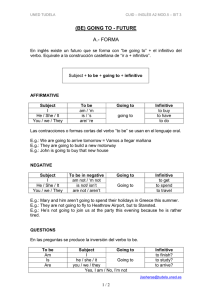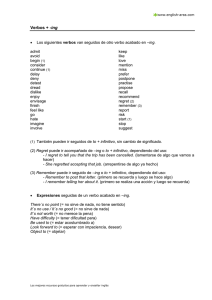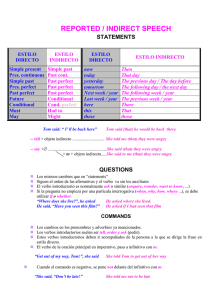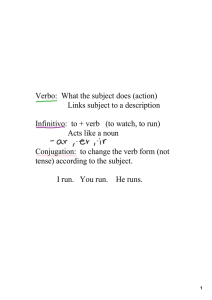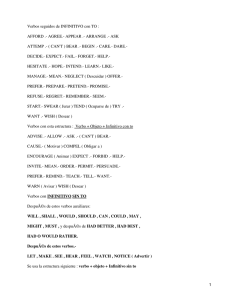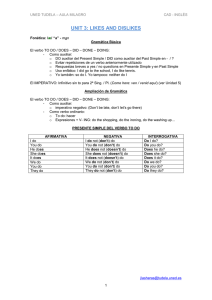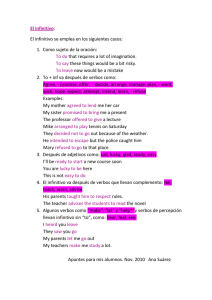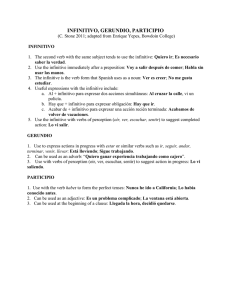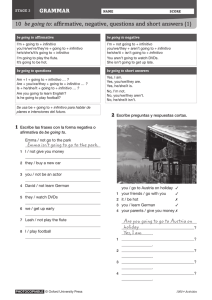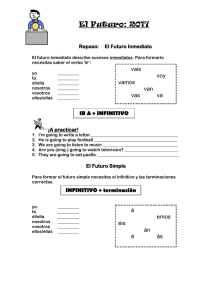UNIT 25: AFTER LUNCH
Anuncio
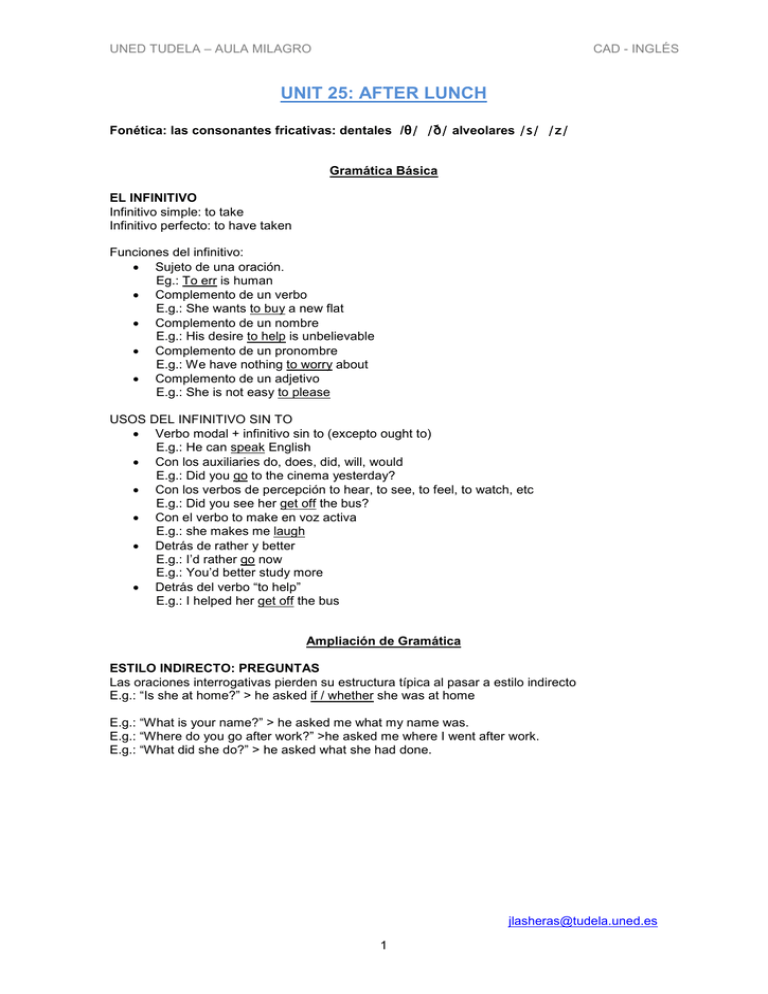
UNED TUDELA – AULA MILAGRO CAD - INGLÉS UNIT 25: AFTER LUNCH Fonética: las consonantes fricativas: dentales /θ θ/ /ð/ alveolares /s/ /z/ Gramática Básica EL INFINITIVO Infinitivo simple: to take Infinitivo perfecto: to have taken Funciones del infinitivo: • Sujeto de una oración. Eg.: To err is human • Complemento de un verbo E.g.: She wants to buy a new flat • Complemento de un nombre E.g.: His desire to help is unbelievable • Complemento de un pronombre E.g.: We have nothing to worry about • Complemento de un adjetivo E.g.: She is not easy to please USOS DEL INFINITIVO SIN TO • Verbo modal + infinitivo sin to (excepto ought to) E.g.: He can speak English • Con los auxiliaries do, does, did, will, would E.g.: Did you go to the cinema yesterday? • Con los verbos de percepción to hear, to see, to feel, to watch, etc E.g.: Did you see her get off the bus? • Con el verbo to make en voz activa E.g.: she makes me laugh • Detrás de rather y better E.g.: I’d rather go now E.g.: You’d better study more • Detrás del verbo “to help” E.g.: I helped her get off the bus Ampliación de Gramática ESTILO INDIRECTO: PREGUNTAS Las oraciones interrogativas pierden su estructura típica al pasar a estilo indirecto E.g.: “Is she at home?” > he asked if / whether she was at home E.g.: “What is your name?” > he asked me what my name was. E.g.: “Where do you go after work?” >he asked me where I went after work. E.g.: “What did she do?” > he asked what she had done. jlasheras@tudela.uned.es 1

